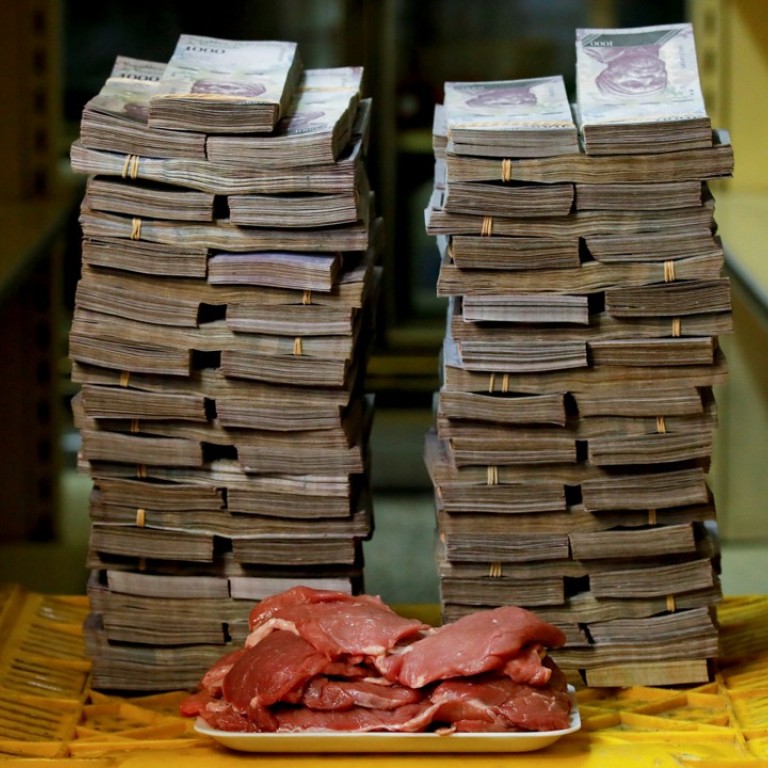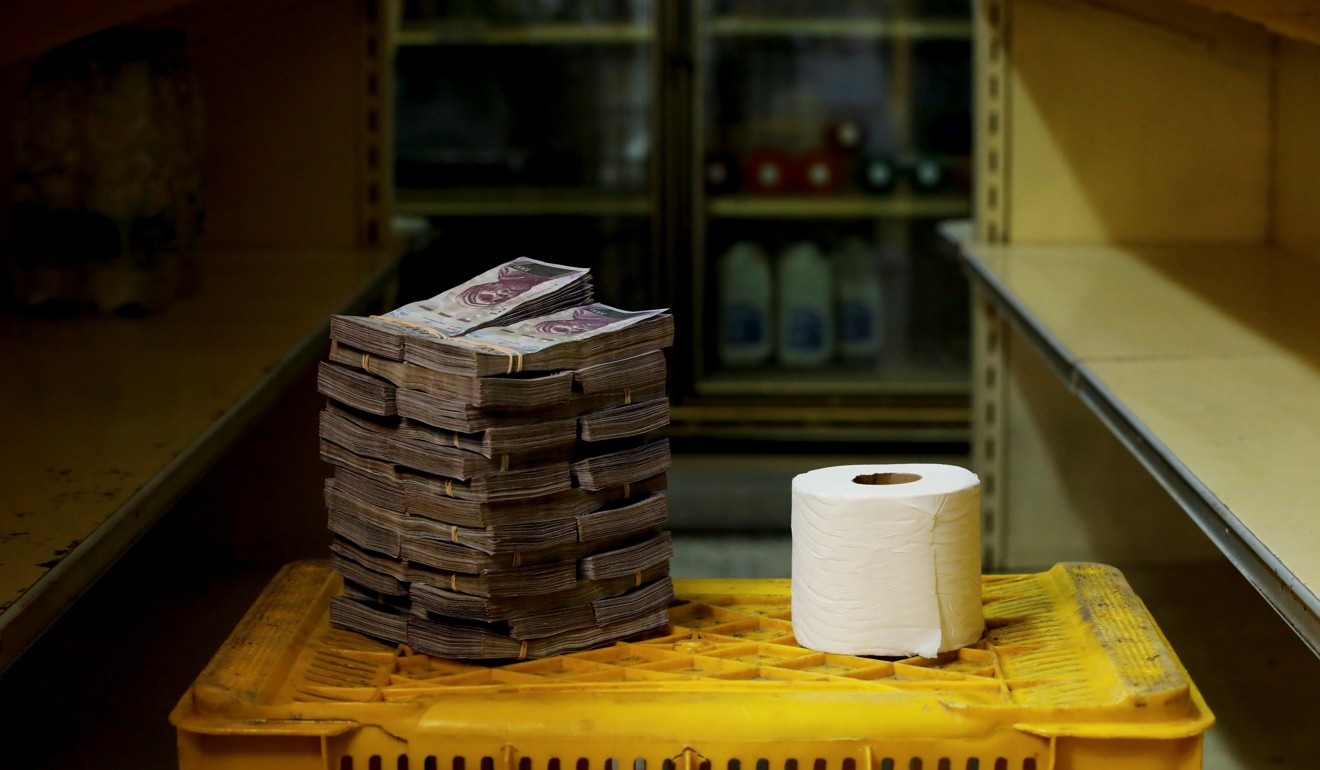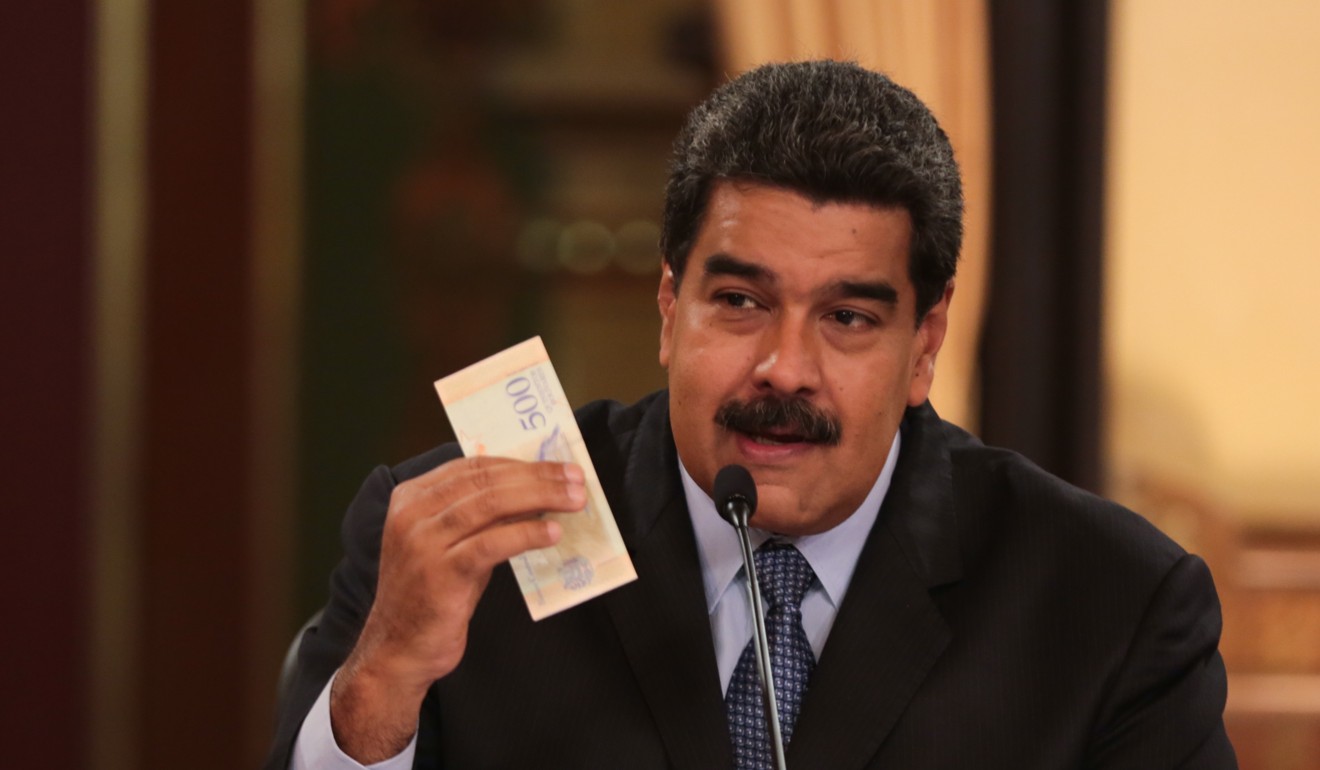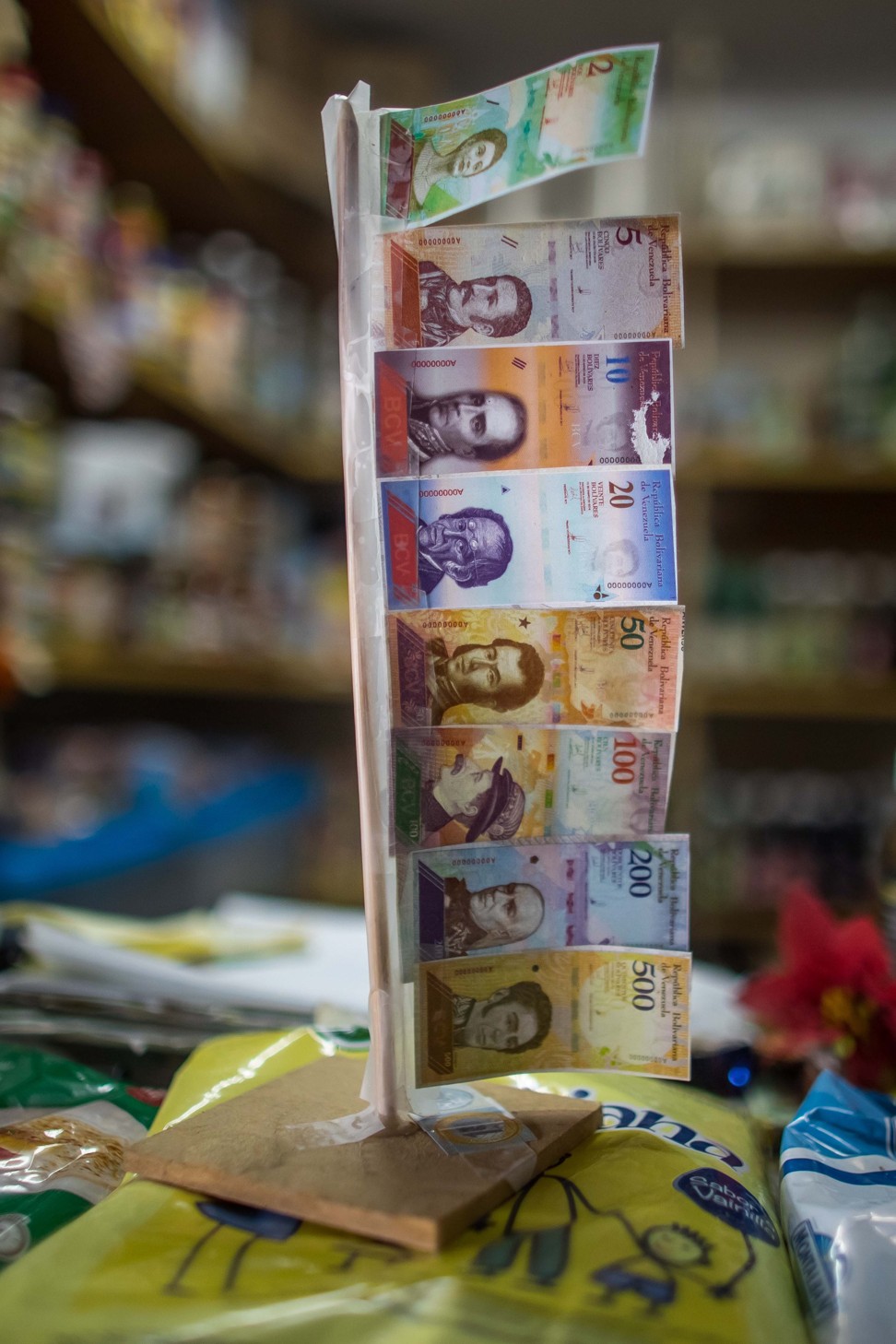
Crisis-hit Venezuela on edge as new sovereign bolívar banknotes enter circulation
The government will enact a drastic currency devaluation and a tax increase, and will raise fuel prices
Uncertainty reigned in Venezuela after President Nicolas Maduro unveiled a major economic reform plan aimed at halting the spiralling hyperinflation that has thrown the oil-rich, cash-poor South American country into chaos.
Ahead of a major currency overhaul on Monday, when Caracas will start issuing new banknotes after slashing five zeroes off the crippled bolívar, Maduro detailed other measures he hopes will pull Venezuela out of crisis.
Those measures – revealed in a speech to the nation late Friday – include a massive minimum wage hike, the fifth so far this year.
But analysts say the radical overhaul could only serve to make matters worse.
“There will be a lot of confusion in the next few days, for consumers and the private sector,” said the director of the Ecoanalitica consultancy, Asdrubal Oliveros.
“It’s a chaotic scenario.”
What next for Venezuela’s broken economy, with 1,000,000 per cent hyperinflation?
Three of the country’s leading opposition groups – Primero Justicia, Voluntad Popular and Causa R – have rejected the reform plan and called for a day of protest on Tuesday.
The embattled Maduro, a former bus driver and union leader, said the country needed to show “fiscal discipline” and stop the excessive money printing that has been regular in recent years.
The new currency, the sovereign bolívar – to distinguish from the current, and ironically named, strong bolívar – will be anchored to the country’s widely discredited cryptocurrency, the Petro.
Each Petro will be worth about US$60, based on the price of a barrel of Venezuela’s oil. In the new currency, that will be 3,600 sovereign bolívars – signalling a massive devaluation.

In turn, the minimum wage will be fixed at half a Petro (1,800 sovereign bolívars), starting Monday. That is about US$28 – more than 34 times the previous level of less than a dollar at the prevailing black market rate.
Maduro also said the country would have one fluctuating official exchange rate, also anchored to the Petro, without saying what the starting level would be.
As it stands, the monthly minimum wage – devastated by inflation and the aggressive devaluation of the bolívar – is still not enough to buy a kilo of meat.
In the capital Caracas, residents were sceptical about the new measures.
“Everything will stay the same, prices will continue to rise,” 39-year-old Bruno Choy, who runs a street food stand, said.
Angel Arias, a 67-year-old retiree, dubbed the new currency a “pure lie!”
The International Monetary Fund predicts inflation will hit a staggering one million per cent this year in Venezuela – now in a fourth year of recession, hamstrung by shortages of basic goods, and crippled by paralysed public services.

Maduro blames the country’s financial woes on opposition “plots” and American sanctions – but admits that the government will “learn as we go along” when it comes to the currency redenomination.
His government pushed back Saturday against criticism of the economic reform plan.
“Don’t pay attention to naysayers,” Information Minister Jorge Rodriguez said.
“With oil income, with taxes and income from gasoline price hikes … we’ll be able to fund our programme.”
Electronic transactions were to be suspended from Sunday to facilitate the introduction of the new notes.
Oil production accounts for 96 per cent of Venezuela’s revenue – but that has slumped to a 30-year low of 1.4 million barrels a day, compared to its record high of 3.2 million 10 years ago.
The fiscal deficit is almost 20 per cent of GDP while Venezuela struggles with an external debt of $150 billion.
Venezuela launched the Petro in a bid for liquidity to try to circumvent US sanctions that have all but stamped out international financing.

Friday’s devaluation ranks among Venezuela’s most significant. In 1983, President Luis Herrera Campins devalued the bolivar for the first time in 22 years after oil prices crashed on a day known locally as “Black Friday”.
When in 1989 Venezuela raised gasoline costs, lifted foreign-exchange controls and let the currency plunge, prices soared 21 per cent in one month, leading to the “Caracazo” riots that killed hundreds and paved the way for the leftist President Hugo Chavez’s rise to power.
Maduro’s predecessor Chavez stripped three zeroes off the bolívar in 2008, but that failed to prevent hyperinflation.
Oliveros warned that the new bank notes will crumble “within a few months” if hyperinflation is not brought under control.
As Venezuela disintegrates, a new breed of pirates terrorises the Caribbean
According to economist Jean Paul Leidenz, Venezuela is trying to emulate Brazil, which replaced its old cruzeiro currency with the real in the 1990s after the former was destroyed by hyperinflation.
But he said that will not work because of the government’s fiscal indiscipline and a lack of financing
Cryptocurrency rating site ICOindex.com has branded the Petro a “scam” while the US has banned its nationals from trading in it.
“Anchoring the bolívar to the Petro is anchoring it to nothing,” said economist Luis Vicente Leon, director at polling organisation Datanalisis.
Right from the outset, it has not been clear how the Petro would operate, nor what being backed by oil actually means.
Maduro’s government is desperately grasping at straws to try to fix the country’s economic meltdown.
Earlier last week, he announced a curb on heavily subsidised fuel in a bid to prevent oil being smuggled to other countries.
Subsidies would only be available to citizens registering their vehicles for a “fatherland card” – which the opposition has decried as a mechanism to exert social control over opponents.
Fuel subsidies have cost Venezuela US$10 billion since 2012, according to oil analyst Luis Oliveros, but without them, most people would not be able to buy fuel.
Additional reporting by Associated Press

.png?itok=arIb17P0)